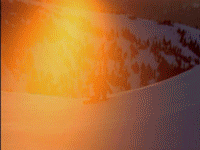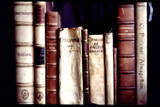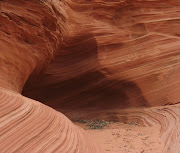Slalom and downhills on the mighty European Alps were once a given based on their massive amounts of snowfall. Current snowlines compare to some guys' receding hairlines. Started early, no one except regulars appreciated the change and then all of a sudden, a massive patch that calls attention to the barren area from casual observers at a skiing reuinion outlines what was once dense with nature's covering. For twenty years the Alps were staving off baldness. Now comes economic devastation for the expensive sport of European skiing (tourism) dependent on an annual abundance of snowpack or fresh powder for the five diamond downhiller, half pipe surfin' snowboarders and the more intrepid cross-country skiers. The ski season typically runs from December to April while the summer brings out the mountain bikers, glider fanatics and the hearty that can withstand the cold mountain lakes for a dip or a sail. Mont Blanc reigns supreme as the highest point in the mountain range.
amounts of snowfall. Current snowlines compare to some guys' receding hairlines. Started early, no one except regulars appreciated the change and then all of a sudden, a massive patch that calls attention to the barren area from casual observers at a skiing reuinion outlines what was once dense with nature's covering. For twenty years the Alps were staving off baldness. Now comes economic devastation for the expensive sport of European skiing (tourism) dependent on an annual abundance of snowpack or fresh powder for the five diamond downhiller, half pipe surfin' snowboarders and the more intrepid cross-country skiers. The ski season typically runs from December to April while the summer brings out the mountain bikers, glider fanatics and the hearty that can withstand the cold mountain lakes for a dip or a sail. Mont Blanc reigns supreme as the highest point in the mountain range.

Danger is manifest in the melting snow. Snow packs and glaciers are necessary to storing a nation's or regions fresh water supply. The Swiss Alps is home of the Aletsch Glacier, the largest in the mountain range that supplies hydroelectric power and feeds the Rhone River. And like the witch in the Wizard of Oz - it's melting. Many resorts resort to manmade snow or snow cannons which use ungodly amounts of water and fossil fuels to attract skiers and boarders. It is the same principle as a golfer standing on an exquisitely designed beautifully green 18-hole course in the middle of a 100° F desert. Both examples exist as a testament to somebody's economic ego rather than conservation or land management. More people are dying in alpine avalanches as further instability of the snow from melting is exacerbated by winds which aide in triggering avalanches. Last years deaths due to avalanches are small compared to the 1951-1952 season dubbed the Winter of Terror, in which hundreds perished in 649 avalanches in three months.
Rhone River. And like the witch in the Wizard of Oz - it's melting. Many resorts resort to manmade snow or snow cannons which use ungodly amounts of water and fossil fuels to attract skiers and boarders. It is the same principle as a golfer standing on an exquisitely designed beautifully green 18-hole course in the middle of a 100° F desert. Both examples exist as a testament to somebody's economic ego rather than conservation or land management. More people are dying in alpine avalanches as further instability of the snow from melting is exacerbated by winds which aide in triggering avalanches. Last years deaths due to avalanches are small compared to the 1951-1952 season dubbed the Winter of Terror, in which hundreds perished in 649 avalanches in three months.
Skiers chase the best powder. This leaves a good part of the Alps vulnerable for more than one reason. Climate change is redistributing natural elements in its own way affecting tax revenue for nations, diminishing livelihoods for ski operators and making high quality skiing in the Alps more dangerous and a massive environmental challenge.

That said, here is the latest for skiing upon pre-publishing hopeful snowfall projections for the best of what Europe can offer for resort. Off-piste, you are on your own though. Top 50 Ski and Snowboard Resorts in Europe 2008-2009 from the author duo of Pat Sharples and Vanessa Webb.
 amounts of snowfall. Current snowlines compare to some guys' receding hairlines. Started early, no one except regulars appreciated the change and then all of a sudden, a massive patch that calls attention to the barren area from casual observers at a skiing reuinion outlines what was once dense with nature's covering. For twenty years the Alps were staving off baldness. Now comes economic devastation for the expensive sport of European skiing (tourism) dependent on an annual abundance of snowpack or fresh powder for the five diamond downhiller, half pipe surfin' snowboarders and the more intrepid cross-country skiers. The ski season typically runs from December to April while the summer brings out the mountain bikers, glider fanatics and the hearty that can withstand the cold mountain lakes for a dip or a sail. Mont Blanc reigns supreme as the highest point in the mountain range.
amounts of snowfall. Current snowlines compare to some guys' receding hairlines. Started early, no one except regulars appreciated the change and then all of a sudden, a massive patch that calls attention to the barren area from casual observers at a skiing reuinion outlines what was once dense with nature's covering. For twenty years the Alps were staving off baldness. Now comes economic devastation for the expensive sport of European skiing (tourism) dependent on an annual abundance of snowpack or fresh powder for the five diamond downhiller, half pipe surfin' snowboarders and the more intrepid cross-country skiers. The ski season typically runs from December to April while the summer brings out the mountain bikers, glider fanatics and the hearty that can withstand the cold mountain lakes for a dip or a sail. Mont Blanc reigns supreme as the highest point in the mountain range.Climate Change is having a devastating effect on alpine skiing with ski operators seeing epic declines in business. In Geophysical Research Letters, the study author, Christoph Marty states the most recent winter was passable with the proviso as long as it was above 1200 meters or 3900 feet. The higher elevation one goes to ski, the more difficult and expensive it is for tourists and snow aficionados to access. North American ski slopes are not experiencing the same level of consistent decline of the annual snows, but they are relying on artificial snow more. Skiers will always be the experts to speak about snow quality though.The future of winter tourism in the region is looking grim. "I don't believe we will see the kind of snow conditions we have experienced in past decades," says Christoph Marty at the Swiss Federal Institute for Snow and Avalanche Research in Davos.
The warning comes four years after a study for the United Nations Environment Programme predicted that more than half of resorts in France, Italy, Germany, Switzerland and Austria could be forced out of business over the next five decades as the snow line rises.
It was based on temperatures increasing by between 1.4C (2.5F) and 5.8C (10.4F) during this century.
The latest research, which paints an even bleaker picture, is the first to take in 10 years of new data from 34 stations between 200 and 1800 metres above snow level.

Danger is manifest in the melting snow. Snow packs and glaciers are necessary to storing a nation's or regions fresh water supply. The Swiss Alps is home of the Aletsch Glacier, the largest in the mountain range that supplies hydroelectric power and feeds the
 Rhone River. And like the witch in the Wizard of Oz - it's melting. Many resorts resort to manmade snow or snow cannons which use ungodly amounts of water and fossil fuels to attract skiers and boarders. It is the same principle as a golfer standing on an exquisitely designed beautifully green 18-hole course in the middle of a 100° F desert. Both examples exist as a testament to somebody's economic ego rather than conservation or land management. More people are dying in alpine avalanches as further instability of the snow from melting is exacerbated by winds which aide in triggering avalanches. Last years deaths due to avalanches are small compared to the 1951-1952 season dubbed the Winter of Terror, in which hundreds perished in 649 avalanches in three months.
Rhone River. And like the witch in the Wizard of Oz - it's melting. Many resorts resort to manmade snow or snow cannons which use ungodly amounts of water and fossil fuels to attract skiers and boarders. It is the same principle as a golfer standing on an exquisitely designed beautifully green 18-hole course in the middle of a 100° F desert. Both examples exist as a testament to somebody's economic ego rather than conservation or land management. More people are dying in alpine avalanches as further instability of the snow from melting is exacerbated by winds which aide in triggering avalanches. Last years deaths due to avalanches are small compared to the 1951-1952 season dubbed the Winter of Terror, in which hundreds perished in 649 avalanches in three months.Skiers chase the best powder. This leaves a good part of the Alps vulnerable for more than one reason. Climate change is redistributing natural elements in its own way affecting tax revenue for nations, diminishing livelihoods for ski operators and making high quality skiing in the Alps more dangerous and a massive environmental challenge.

That said, here is the latest for skiing upon pre-publishing hopeful snowfall projections for the best of what Europe can offer for resort. Off-piste, you are on your own though. Top 50 Ski and Snowboard Resorts in Europe 2008-2009 from the author duo of Pat Sharples and Vanessa Webb.










No comments:
Post a Comment